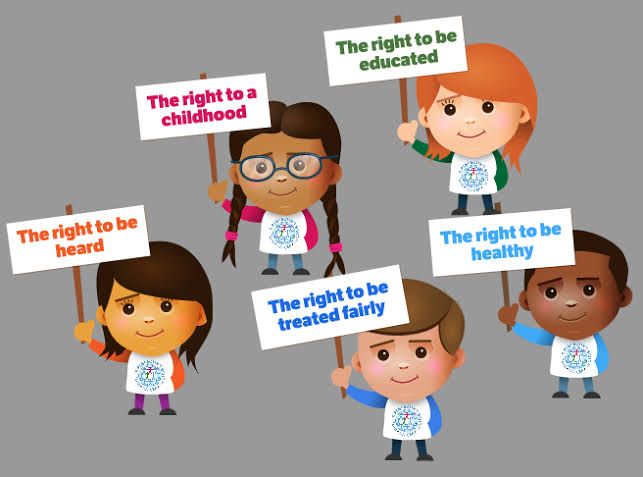Understanding Family Planning: Importance, Methods, and Benefits

Family planning is a critical aspect of public health and individual well-being. It involves making informed decisions about the number and spacing of children in a family. Through the use of contraceptive methods, education, and medical guidance, family planning allows individuals and couples to achieve their desired family size, promote health, and improve the quality of life.
What Is Family Planning?
Family planning refers to the practice of controlling when to have children, how many to have, and how far apart to space them. It encompasses both natural and artificial methods to prevent or promote pregnancy. While often associated with contraception, family planning also includes fertility treatments, sexual health education, and the prevention of sexually transmitted infections (STIs).
Why Is Family Planning Important?
Family planning plays a fundamental role in various aspects of life, ranging from personal health to national development:
1. Maternal and Child Health
One of the primary benefits of family planning is the protection of maternal and child health. Proper spacing of pregnancies reduces the risk of complications during childbirth and decreases the likelihood of infant mortality. It also allows mothers enough time to recover physically and emotionally between pregnancies.
2. Economic Stability
For families, planning the number of children they can support leads to better resource allocation. Families with fewer children can invest more in each child’s education, healthcare, and overall development. On a larger scale, countries that promote family planning often see slower population growth, which can contribute to economic development and reduced poverty.
3. Empowerment of Women
Family planning empowers women by giving them control over their reproductive choices. It allows them to pursue education, build careers, and participate fully in social and economic activities. This autonomy enhances gender equality and contributes to stronger, more inclusive communities.
4. Environmental Sustainability
Uncontrolled population growth can lead to environmental degradation due to increased demand for natural resources such as water, food, and energy. Family planning helps maintain a sustainable balance between population growth and resource availability.
Methods of Family Planning
There are several methods of family planning, categorized into natural and artificial approaches. The choice of method depends on personal preferences, health conditions, cultural beliefs, and access to healthcare services.
1. Natural Methods
These methods do not involve any medical intervention or contraceptive devices. They include:
- Calendar Method (Rhythm Method): Tracking the menstrual cycle to avoid intercourse during fertile days.
- Withdrawal Method: The male partner withdraws before ejaculation to prevent sperm from entering the uterus.
- Fertility Awareness: Monitoring signs of ovulation, such as body temperature and cervical mucus, to determine fertile days.
While natural methods are inexpensive and have no side effects, they require discipline and a deep understanding of the female reproductive cycle. They are also less effective compared to modern contraceptives.
2. Modern Contraceptive Methods
These methods include both hormonal and non-hormonal options:
- Oral Contraceptive Pills: Taken daily to prevent ovulation.
- Intrauterine Devices (IUDs): T-shaped devices inserted into the uterus to prevent fertilization.
- Injectables: Hormonal injections given every few months to suppress ovulation.
- Implants: Small rods placed under the skin that release hormones over time.
- Condoms: Barrier methods that prevent sperm from entering the uterus. They also protect against STIs.
- Emergency Contraceptives: Pills taken after unprotected sex to prevent pregnancy.
- Permanent Methods: Tubal ligation for women and vasectomy for men. These are irreversible procedures for those who do not wish to have more children.
Challenges to Family Planning
Despite the known benefits, several challenges hinder the widespread adoption of family planning:
- Lack of Education: In many regions, especially in rural areas, people lack knowledge about reproductive health and contraceptive methods.
- Cultural and Religious Beliefs: Some communities discourage the use of contraceptives due to religious teachings or cultural norms.
- Limited Access to Healthcare: In low-income and remote areas, access to contraceptive supplies and trained healthcare providers may be limited.
- Misinformation and Myths: Fear of side effects, myths about infertility, and societal pressure often prevent individuals from using family planning methods.
Family Planning and Government Policies
Governments and international organizations play a crucial role in promoting family planning. Initiatives include:
- Public Health Campaigns: Raising awareness through media, schools, and community outreach.
- Subsidized Healthcare: Providing free or affordable contraceptive methods and reproductive health services.
- Education for Girls: Investing in girls’ education, which is strongly linked to lower fertility rates.
- Training Health Workers: Ensuring that healthcare providers are well-trained in offering family planning counseling and services.
Countries like Bangladesh, Rwanda, and Indonesia have seen dramatic improvements in maternal and child health by implementing effective family planning policies.
The Role of Men in Family Planning
Although family planning is often seen as a woman’s responsibility, men play an equally important role. Men can:
- Support their partners in using contraception.
- Share the responsibility by using male methods like condoms or vasectomy.
- Encourage open discussions about reproductive health and choices.
- Educate themselves and others to dispel myths and stigma around family planning.
Promoting male involvement can help create a supportive environment for informed and joint decision-making within families.
Conclusion
Family planning is a vital component of health, development, and personal well-being. It helps individuals and families make conscious decisions about reproduction, leading to healthier lives and more prosperous communities. Despite existing challenges, progress is possible through education, accessible healthcare, and supportive policies. Ultimately, family planning is not just a medical issue — it is a human rights issue that empowers people, promotes equality, and shapes the future of societies.







